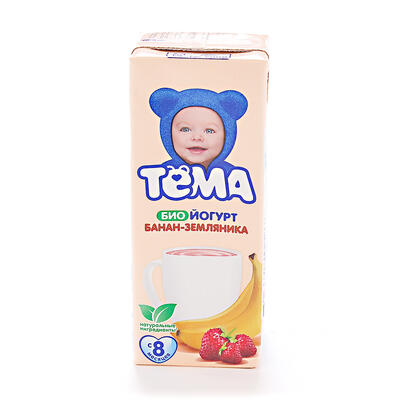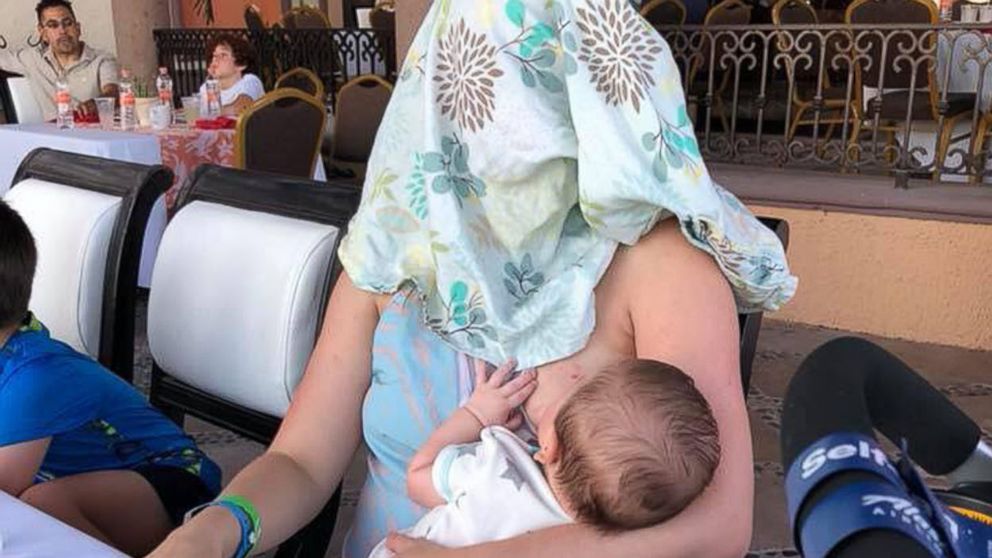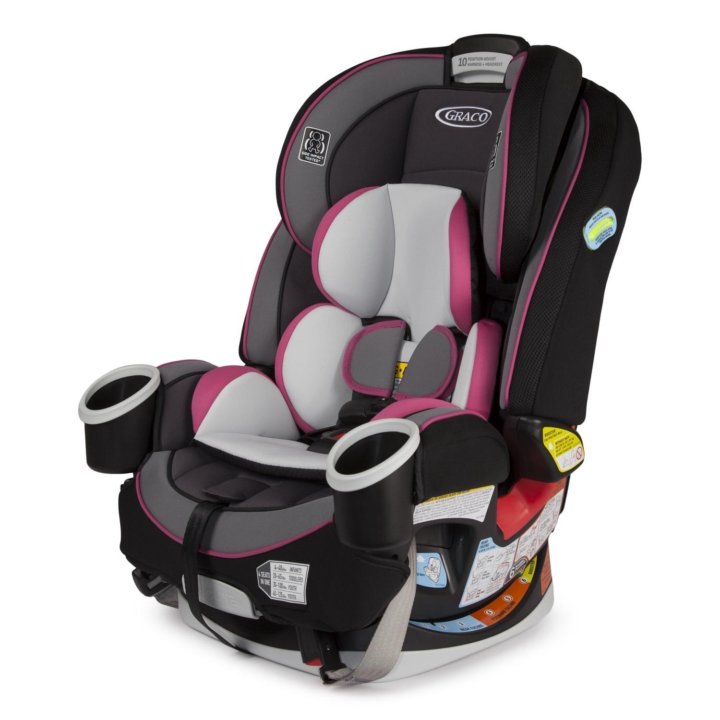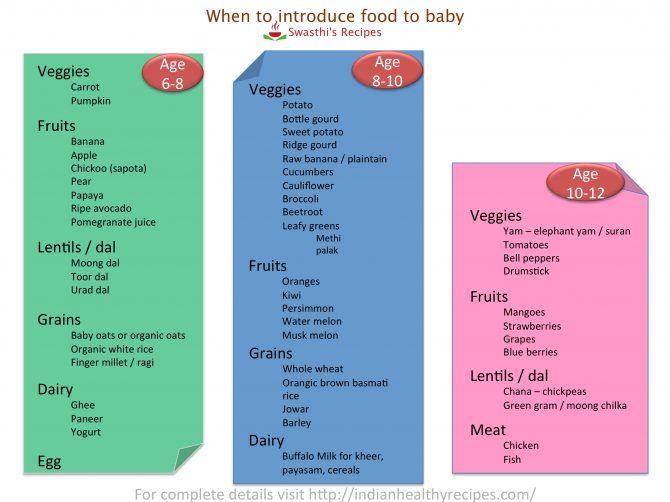Baby only stops crying when feeding
Crying Baby - Before 3 Months Old
Is this your child's symptom?
- A baby less than 3 months old is crying and you don't know why
- Crying is the only symptom
- The type of frequent crying called colic is included
- For crying with an illness or other symptom, go to that care guide
Causes of Unexplained Crying
- Hungry Baby. The most common reason babies cry is because they are hungry. They stop crying at the onset of feeding. By the end of the feeding, they are happy.
- Sleepy Baby. The second reason babies cry is they need sleep. They need their parent to put them in a comfortable position. It may be swaddled and on their back. Then they fuss a little and fall asleep.
- Fed Too Much. Some babies cry because of a bloated stomach from overfeeding. Unlike gas, too much milk can cause discomfort that lasts a short time.
- Caffeine. Caffeine is a stimulant that can cause increased crying and trouble falling asleep.
Breastfeeding mothers need to limit their caffeine intake.
- Clothing. Being too hot or too cold can make a baby cry. So can clothing that is too tight.
- Dirty Diaper. Stool is very irritating to the skin. If not cleaned off, it can cause pain and burning.
- Colic. Colic is the main cause of recurrent crying during the early months. All babies have some normal fussy crying every day. When this occurs over 3 hours per day, it's called colic. When they are not crying, they are happy.
- Pain (Serious). Painful causes include an earache, mouth ulcers, or a raw diaper rash. An ulcer on tip of penis may also cause pain and crying. These babies cry a lot and are not happy when they are not crying. They need to see a doctor to make a diagnosis. Fever in this age group is serious until proven otherwise. Shaken baby syndrome is a concern.
Myths About Causes of Crying
- Not Due to Gas.
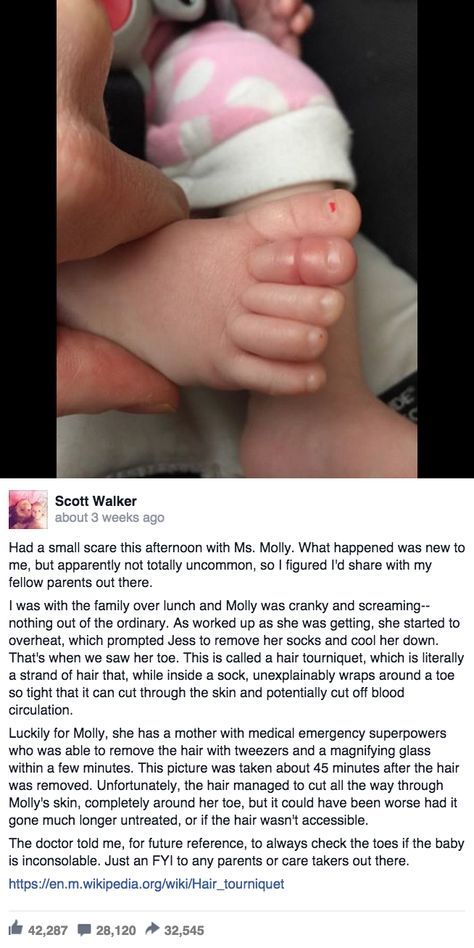 Gas passing through normal intestines does not cause pain or crying. All crying babies pass lots of gas. Their stomachs also make lots of gassy noises. The gas comes from swallowed air. The gas is normal. It does not become trapped nor cause any pains. That's why burping a baby doesn't help the crying. Blaming gas is a myth.
Gas passing through normal intestines does not cause pain or crying. All crying babies pass lots of gas. Their stomachs also make lots of gassy noises. The gas comes from swallowed air. The gas is normal. It does not become trapped nor cause any pains. That's why burping a baby doesn't help the crying. Blaming gas is a myth. - Not Due to Spitting Up. Spitting up occurs in half of babies and is normal. It does not cause crying or colic. Heartburn meds do not help crying babies. They also have side effects.
Definition of Colic
- A lot of crying once or twice per day
- Usually consolable when held and comforted
- Acts normal (happy, contented) between bouts of crying
- The baby is getting enough to eat and is not hungry
- The baby is not sick
- Onset most often before 2 weeks of age
- Usually goes away by 3 months of age (sometimes up to 4 months)
When to Call for Crying Baby - Before 3 Months Old
Call 911 Now
- Not moving or very weak
- You think your child has a life-threatening emergency
Call Doctor or Seek Care Now
- Age less than 1 month old and looks or acts abnormal in any way
- Fever in baby less than 12 weeks old.
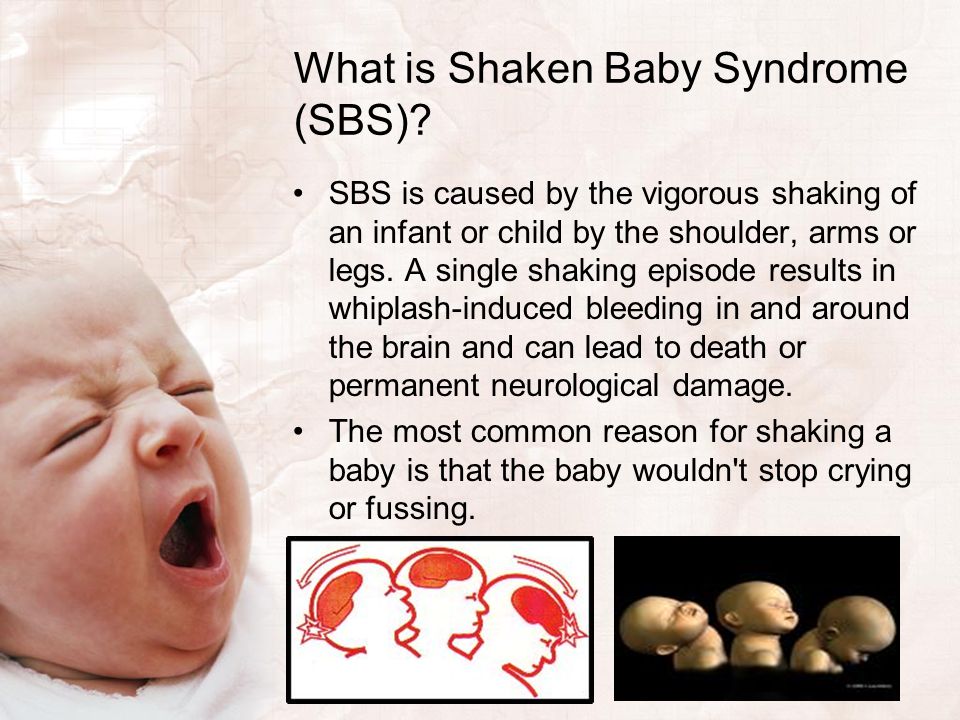 Caution: do NOT give your baby any fever medicine before being seen.
Caution: do NOT give your baby any fever medicine before being seen. - Bulging or swollen soft spot
- Swollen scrotum or groin
- Vomiting
- Cries when you touch, move or hold your baby
- Could be an injury
- Nonstop crying lasts more than 2 hours. Your baby can't be consoled using this Care Advice.
- Will not drink or drinks very little for more than 8 hours
- You are afraid someone might hurt or shake your baby
- High-risk child (such as with heart or brain disease)
- Your child looks or acts very sick
- You think your child needs to be seen, and the problem is urgent
Contact Doctor Within 24 Hours
- Not gaining weight or seems hungry
- New crying, but your baby can be consoled. Your baby will stop crying, but cause of crying not clear.
- You are worn out from all the crying
- You think your child needs to be seen, but the problem is not urgent
Contact Doctor During Office Hours
- Your baby has never been checked for excessive crying
- Crying started after 1 month of age
- Crying occurs 3 or more times per day
- You have other questions or concerns
Self Care at Home
- Normal crying in all babies
- Colic (Excessive crying in a well baby who can be consoled)
Seattle Children's Urgent Care Locations
If your child’s illness or injury is life-threatening, call 911.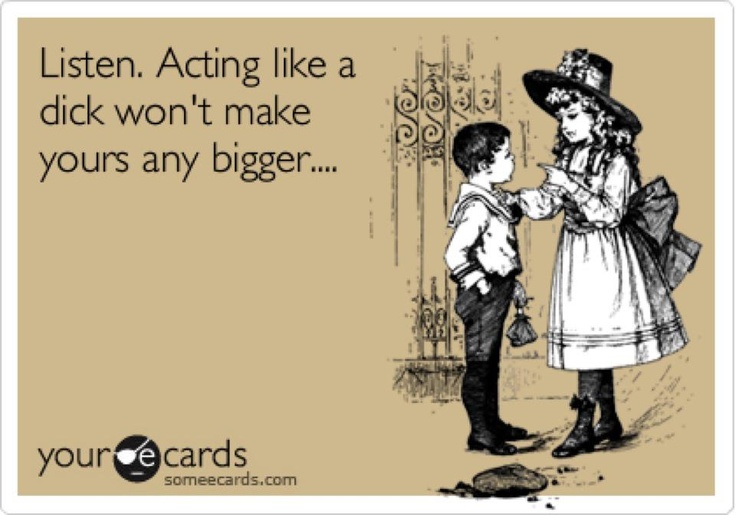
- Bellevue
- Everett
- Federal Way
- Seattle
Care Advice for Normal Crying or Colic
- What You Should Know About Crying:
- Normal Crying: all babies cry when they are hungry. Also, the normal baby has 1 to 2 hours of unexplained crying each day. It is scattered throughout the day. As long as they are happy and content when they are not crying, this is normal.
- Colic: some babies are very hard to comfort.
 Some babies also cry a lot (over 3 hours per day). If growing normally and have a normal medical exam, the crying is called colic. Remind yourself that colic is due to your baby's temperament. It has nothing to do with your parenting or any medical disease.
Some babies also cry a lot (over 3 hours per day). If growing normally and have a normal medical exam, the crying is called colic. Remind yourself that colic is due to your baby's temperament. It has nothing to do with your parenting or any medical disease. - Here is some care advice that should help both types of crying.
- Feedings:
- For formula-fed babies, feed if more than 2 hours since the last feeding. For breast-fed babies, feed if more than 1½ hours since the last feeding.
- Be careful not to feed your baby every time she cries. Some babies cry because of a bloated stomach from overfeeding. Let your baby decide when she's had enough milk. (For example, she turns her head away.) Don't encourage your baby to finish what's in the bottle.
- Caffeine. If breastfeeding, decrease your caffeine intake. Limit your coffee, tea and energy drinks to 2 servings per day. That's 2 cups or 16 ounces (480 mL).
- Hold and Comfort for Crying:
- Hold and try to calm your baby whenever he cries without a reason.
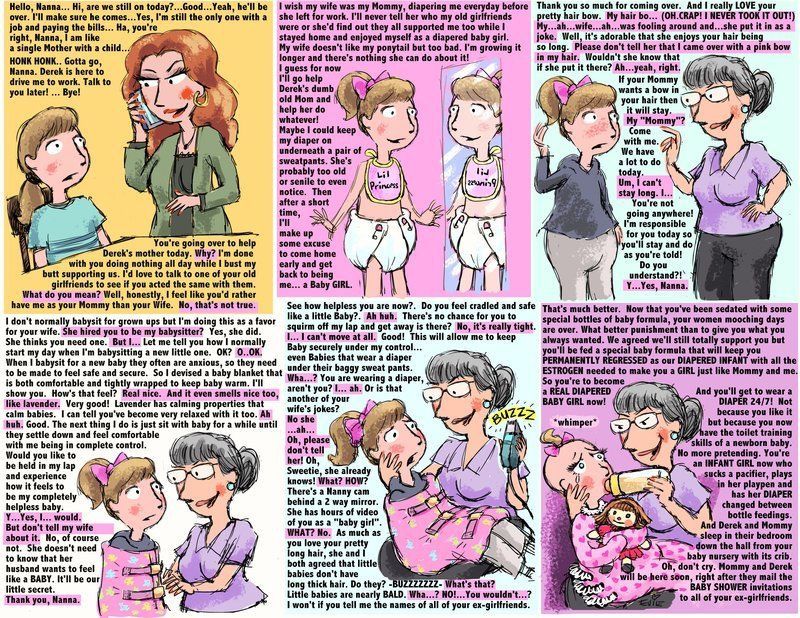 Hold your baby flat to help them relax and go to sleep.
Hold your baby flat to help them relax and go to sleep. - Rock your child in a rocking chair, in a cradle or while standing. Many babies calm best with rapid tiny movements like vibrations.
- Place in a swing or vibrating chair.
- Take for a stroller ride, outdoors or indoors.
- Do anything else you think may be comforting. Examples are using a pacifier, massage, or warm bath.
- Hold and try to calm your baby whenever he cries without a reason.
- Swaddle your Baby in a Blanket for Crying:
- Swaddling is the most helpful technique for calming crying babies. It also keeps your baby from waking up with a startle reflex.
- Use a big square blanket and the "burrito-wrap" technique:
- Step 1: have the arms inside and straight at the sides.
- Step 2: pull the left side of the blanket over the upper body and tuck.
- Step 3: fold the bottom up with the knees a little flexed. Safe swaddling keeps the legs in a straddle position.
- Step 4: pull the right side over the upper body and tuck.

- Caution: don't cover your baby's head or overheat your baby.
- Caution: stop swaddling when your baby shows signs of rolling over. Age limit: 2 months. The startle reflex will most often be gone by this age. At 2 months, transfer to a sleep sack with the arms out.
- Read the book (or view the DVD),"The Happiest Baby on the Block". Both products are authored by Dr. Harvey Karp. It is a good resource on how to calm fussy babies.
- White Noise for Crying:
- Swaddling works even better when paired with a low-pitched white noise. Examples are a CD, vacuum cleaner, fan or other constant sound.
- Caution: avoid making white noise too loud. Reason: risk of hearing damage.
- Keep the white noise on any time your baby is crying.
- When your baby is awake and not crying, keep your baby unwrapped. Turn off the white noise. Reason: so she can get used to the normal sounds of your home. For details, view Dr. Karp's DVD.
- Falling Asleep on their Own:
- Often babies cry because they need to sleep.
 If over 2 hours have passed since the last nap, this probably is the reason.
If over 2 hours have passed since the last nap, this probably is the reason. - You have tried different ways to comfort your baby. You fed him recently. Nothing you do seems to help your baby relax. So, now, it's time to get out of the way.
- Swaddle your baby. Place him on his back in his crib. Turn on some white noise or soothing music. Then, leave the room.
- Let your baby fuss until he falls asleep.
- For some overtired babies, this is the only answer.
- Try to prevent an overtired baby. If your baby has been awake for 2 hours they often need sleep. Help them fall asleep before they become fussy.
- Often babies cry because they need to sleep.
- Encourage Nighttime Sleep (Rather Than Daytime Sleep):
- Try to keep your child from sleeping too much during the daytime.
- If your baby has napped 2 hours or longer, gently wake him up. Play with or feed your baby, depending on his needs. This will lessen the amount of time your baby is awake at night.
- Warning: Never Shake a Baby
- It can cause bleeding on the brain.
 Severe brain damage can happen in a few seconds.
Severe brain damage can happen in a few seconds. - Never leave your baby with someone who is immature or has a bad temper.
- If you are frustrated, put your baby down in a safe place.
- Call or ask a friend or relative for help.
- Take a break until you calm down.
- It can cause bleeding on the brain.
- What to Expect:
- The right technique should start to reduce the crying. You may have to try several things before finding the best method.
- The crying should start to decrease to about 1 hour per day.
- Colic peaks at 4 to 6 weeks. Colic gets better after 2 months of age. Most often, it is gone by 3 months.
- Call Your Doctor If:
- Your baby starts to look or act abnormal
- Cries nonstop for more than 2 hours
- Your child can't be consoled using this advice
- You think your child needs to be seen
- Your child becomes worse
And remember, contact your doctor if your child develops any of the 'Call Your Doctor' symptoms.
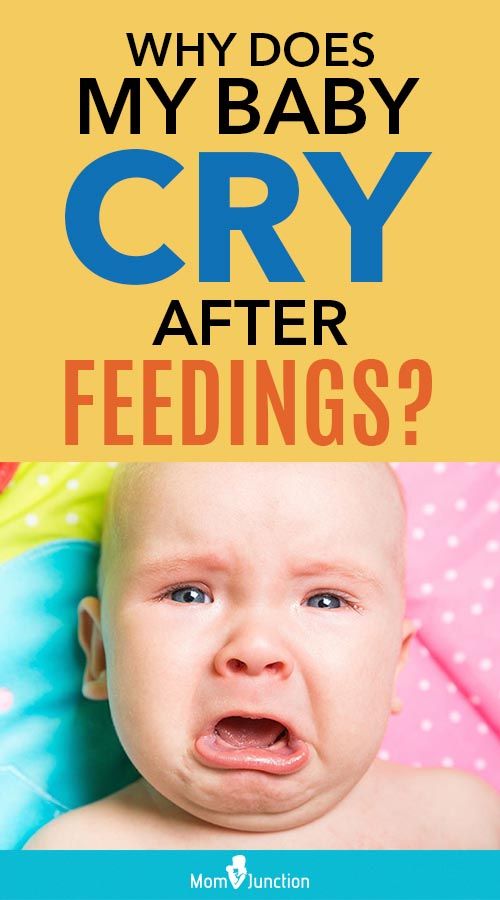
Disclaimer: this health information is for educational purposes only. You, the reader, assume full responsibility for how you choose to use it.
Last Reviewed: 02/08/2023
Last Revised: 12/30/2022
Copyright 2000-2023. Schmitt Pediatric Guidelines LLC.
Symptoms, Possible Causes, Ways to Help & When to See a Doctor
Nationwide Children’s Hospital
All babies cry, but some cry more than others. Healthy newborns start to cry more around 2 weeks of age. They will cry even more until they’re about 6 weeks old. After that, the crying usually gets better.
Colic is when a healthy baby cries for more than 3 hours each day for 3 or more days in one week. If this happens 3 weeks in a row, your baby may have colic.
- Colic can start at 2 to 3 weeks of age and lasts up to 3 or 4 months of age.
- The crying may or may not occur at the same time each day, but it usually happens more often in the evening.

- With colic, your baby will not stop crying when you try usual ways of comforting, such as holding and feeding.
- Colic is a common. It affects 1 in 4 babies and can cause stress on a whole family. It’s important to remember:
- Colic is not your fault.
- Your baby is not angry with you.
- Your anger is normal.
- Colic is not making your baby sick.
Possible Causes
The cause of colic is not known. Although healthy babies can have colic, crying can also be caused by physical problems or their environment. Some things that may be related are:
- Gas pain
- Stomach spasms
- Exposure to smoke
- Immature nervous or digestive system
Signs and Symptoms
Crying is the main sign of colic. While crying, your baby may:
- Flail their arms and legs
- Clench their fists
- Arch their back
- Struggle and seem angry when held
- Draw their legs up toward the belly
Ways to Help
There is no treatment for colic. This makes it hard to comfort your crying baby. You can:
This makes it hard to comfort your crying baby. You can:
- Avoid smoking around them. Do not let others smoke around them.
- Avoid feeding them every time they cry. This can lead to overfeeding, which can make them more uncomfortable.
- Burp them often while feeding. This removes air from their stomach and reduces gas. You can also try massaging their stomach.
- Hold them in your arms. Place them on their left side to help with digestion or on their stomach for support. Gently rub their back. If they fall asleep, put them in their crib on their back.
- Play constant, calming sounds. Use a: white noise machine, humming fan, soothing sound playlist, or recording of a heart beating.
- Take them for a ride in a stroller or car.
- Rock them in a rocking chair.
- Give them a pacifier. Many babies are soothed by extra sucking.
- Walk while holding them.
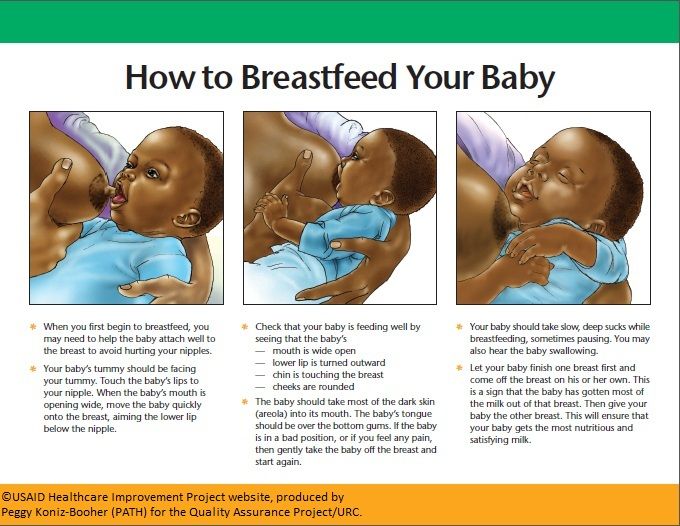 Carry them in a front pack (Picture 1).
Carry them in a front pack (Picture 1).
When to Call the Doctor
Call your baby’s doctor or health care provider if they have any of these symptoms:
- Fever
- Hard poop
- Diarrhea
- Poor weight gain
- Poor feeding
- Blood in poop
- Throwing up (vomiting)
- Spitting up a lot of formula
Preventing Abusive Head Trauma
Remember to place your baby in a safe place and walk away if you start feeling angry or frustrated. It will not hurt them if they keep crying.
Never shake your baby. Shaking will not stop the crying and can cause abusive head trauma (AHT). AHT, formerly called Shaken Baby Syndrome, is caused by serious brain damage. It happens when a baby’s head is moved rapidly, then suddenly stops.
Everyone around your baby needs to know that they may cry a lot. This includes family members, friends, or babysitters.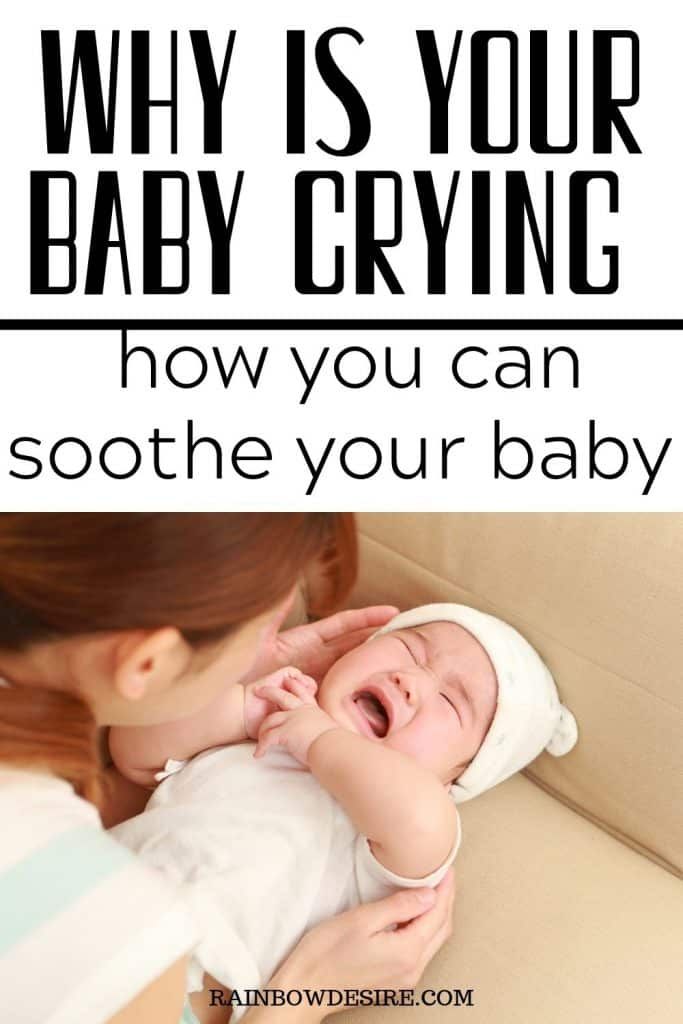 They must know how to comfort them to prevent AHT.
They must know how to comfort them to prevent AHT.
To avoid AHT:
- Gently and safely place your baby on their back in a crib or swing. Secure all railings or safety belts before you walk away.
- Check on your baby every 5 to 10 minutes.
- Ask someone you trust, like a relative or friend, to stay with your baby while you get out of the house. Go see a movie, shop, go out to dinner, or take a walk.
- Try to rest when your baby naps. Getting enough rest will help with stress.
If you have any questions, ask your doctor or health care provider.
Colic (PDF)
HH-I-103 • ©1982, revised 2023 • Nationwide Children's Hospital
Why does the baby cry during breastfeeding
Yakovleva Ekaterina Andreevna
pediatrician, breastfeeding consultant
Why does baby cry while breastfeeding? The answer may lie on the surface and depend on the situation.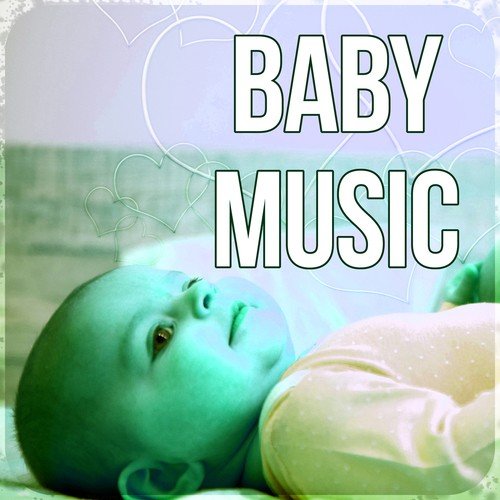 Some mothers themselves begin to put forward theories that are often incorrect - “I don’t have milk”, “I ate something wrong”, “The milk became tasteless and bitter”, “I shouldn’t have bought silicone pads” ... Consider the most frequent causes of crying at the breast and options for helping the baby together with Ekaterina Andreevna Yakovleva, pediatrician, breastfeeding consultant and mother of two babies. She knows about the tears of babies not only from professional, but also from maternal experience.
Some mothers themselves begin to put forward theories that are often incorrect - “I don’t have milk”, “I ate something wrong”, “The milk became tasteless and bitter”, “I shouldn’t have bought silicone pads” ... Consider the most frequent causes of crying at the breast and options for helping the baby together with Ekaterina Andreevna Yakovleva, pediatrician, breastfeeding consultant and mother of two babies. She knows about the tears of babies not only from professional, but also from maternal experience.
WHY A CHILD CRYS DURING FOOD
— Ekaterina Andreevna, is crying during feeding dangerous?
— Crying during feeding is a normal way for a baby to communicate with the outside world. So he calls his mother, shows that he wants to eat or something bothers him. The only thing that crying can affect is that the baby will come off the chest and take in air. This will lead to more abundant regurgitation, increased pain in the tummy.
Table. Newborn cries during feeding - 9 reasons0018
— Can a change in priorities of a child affect his behavior at the breast?
- Up to three months, babies have one priority - they need to either eat and sleep or change a wet diaper. After the children become more active, they are already interested in the world around them. Therefore, when feeding in public places, and also when the mother combines the process with talking on the phone or watching TV, the child can be distracted: suck - turn away - suck, ask for different breasts in turn, indulge.
After the children become more active, they are already interested in the world around them. Therefore, when feeding in public places, and also when the mother combines the process with talking on the phone or watching TV, the child can be distracted: suck - turn away - suck, ask for different breasts in turn, indulge.
After three or four months, the baby should not be on the breast very often, but mothers find it difficult to readjust and continue to breastfeed constantly to soothe him. But in fact, the child’s needs are already different - he wants to be vilified on the handles, paid attention to him, played with him, showed him toys.
- Let's discuss misattachment in more detail. What can a mother do wrong if the child does not eat well and cries?
- A very common symptom of improper attachment or refusal of the breast is trouble-free feeding only in sleep. When the child sleeps, he eats calmly, and when he is awake, he begins to twist at the chest, cry.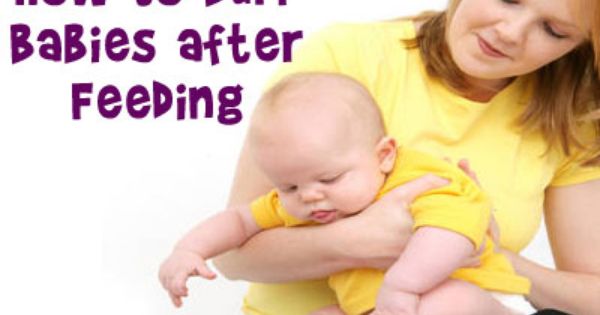 Mom can get tired of this, and in order to calm and feed the baby, during the day she gives him a bottle. In such a situation, it makes sense to talk about breastfeeding and work to restore normal feeding.
Mom can get tired of this, and in order to calm and feed the baby, during the day she gives him a bottle. In such a situation, it makes sense to talk about breastfeeding and work to restore normal feeding.
Problems may arise from awkward or repetitive posture during feeding. By trial and error, the mother should choose the position that will be most convenient for her and the child. However, if a baby is fed only lying down from birth, at an older age he may refuse to eat in his arms, break out and cry.
A CHILD CRYING WHEN FEEDING - HOW TO HELP
- Ekaterina Andreevna, everything is very individual for small children. How to understand why a child eats and cries?
— If the baby cries during feeding, the mother should examine the possible reasons for this behavior step by step and:
- Eliminate the reasons related to the child's well-being, which she can deal with herself.
- Work on breastfeeding techniques.
- Seek medical attention if all else fails - child continues to cry and has additional questionable symptoms.

A triad of symptoms that are always alarming
You should also consult a doctor if, during feeding, the child wriggles and cries from constant acute pain, cannot calm down, vomiting, blood and mucus in the stool, rashes in the mouth, stuffy nose are observed. Fever is an acute condition that is not associated with constant (for example, for a month) baby crying during feeding.
— What should I do if my baby refuses to breastfeed?
— The main thing for a mother is to remain calm and adequate. For a breastfed baby, one break can last an hour, and another five to six hours if the baby has slept long and well. Taking long breaks during the day, the child will still finish his daily allowance in order to develop normally. For example, if he has not eaten for six hours during the daytime, he will breastfeed more often at night. Therefore, in feeding children in the first half of life during the day, it is better not to take breaks for more than 3-3.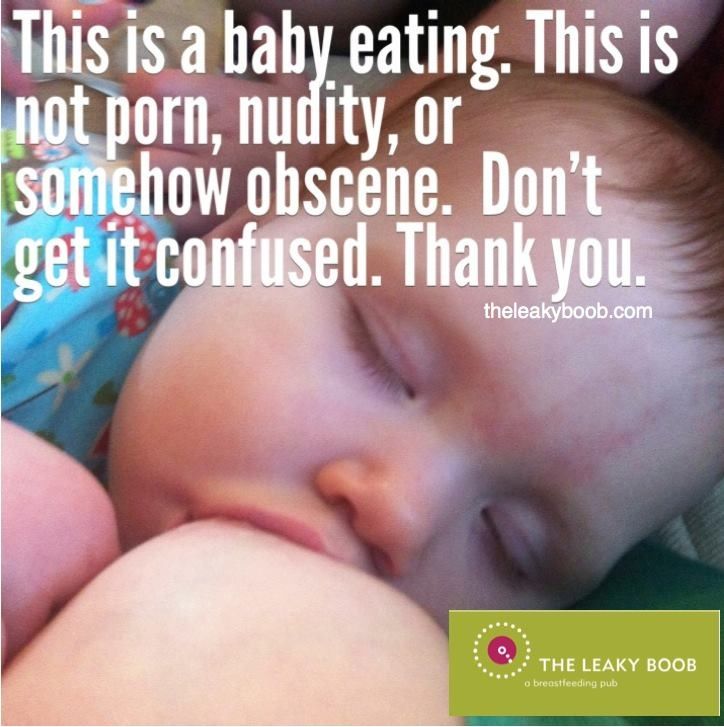 5 hours. With the introduction of complementary foods, the intervals may be slightly longer.
5 hours. With the introduction of complementary foods, the intervals may be slightly longer.
Night breaks are individual and depend only on the child - some children are born with a 6-8 hour interval, and some sleep at night for eight to twelve hours or eat every hour.
Read also
- About the reasons why a child refuses breast milk and whether it is necessary to switch to mixed or artificial feeding in such cases.
— Is it necessary to stop feeding if the baby is naughty?
- Depends on age. Mom should feel what exactly the child needs at this moment. If a newborn cries and refuses to breastfeed, you can calm him down, vilify him with a column, shake him, and then attach him to the breast again. If, having calmed down, the child turns away from the chest, then he has eaten.
An older child is distracted from the breast, becoming interested in something else. Do not force feed him. We must try to remove all irritants - feed in isolation in a separate room, not be distracted by gadgets, sounds, or give the child the opportunity to satisfy his interests, and then offer the breast again.
— What else can help calm the baby?
- Since most causes of crying are not related to medical problems, medication is not needed. It is necessary to relax, set up the baby, pump him, try to competently organize breastfeeding - apply correctly, do not give a dummy, nipple, supplement from a cup or syringe without a needle. As a rule, this is how most feeding problems go away.
— In what situations can a breast be replaced with a bottle?
— It is not worth replacing breastfeeding with formula feeding without acute vital signs. When a baby is not accepting the breast well, it is worth removing all bottles, continuing to supplement with “non-sucking” items, and contacting a breastfeeding specialist to try to establish attachment and breastfeeding. This is done by a lot of people.
- Does changing the feeding regimen help to get rid of crying?
- Rather, these are unrelated things. It is not worth forcibly adjusting the feeding regimen, you need to listen to the child - in the first three months, the children constantly hang on their chest, after they begin to form a regimen and the intervals between meals increase. It is important to feel the needs of the child, because not only hunger, but also other things can disturb him, and if he constantly poke his chest, he will not be very pleased.
It is important to feel the needs of the child, because not only hunger, but also other things can disturb him, and if he constantly poke his chest, he will not be very pleased.
Table. Mistakes during breastfeeding
The baby cries during breastfeeding for many reasons. It can be improper attachment to the breast, "tangled nipples", inflammatory diseases of the oral cavity, runny nose, colic, teething, lactase deficiency, or a very nervous state of the mother. It is possible to understand what the problem is only by eliminating the organic and psychological causes of crying. With prolonged ongoing anxiety, the child should be shown to a specialist.
* Breast milk is the best food for babies. WHO recommends exclusive breastfeeding for the first 6 months of a child's life and continued breastfeeding after complementary foods are introduced until the age of 2 years. Before introducing new products into the baby's diet, you should consult with a specialist.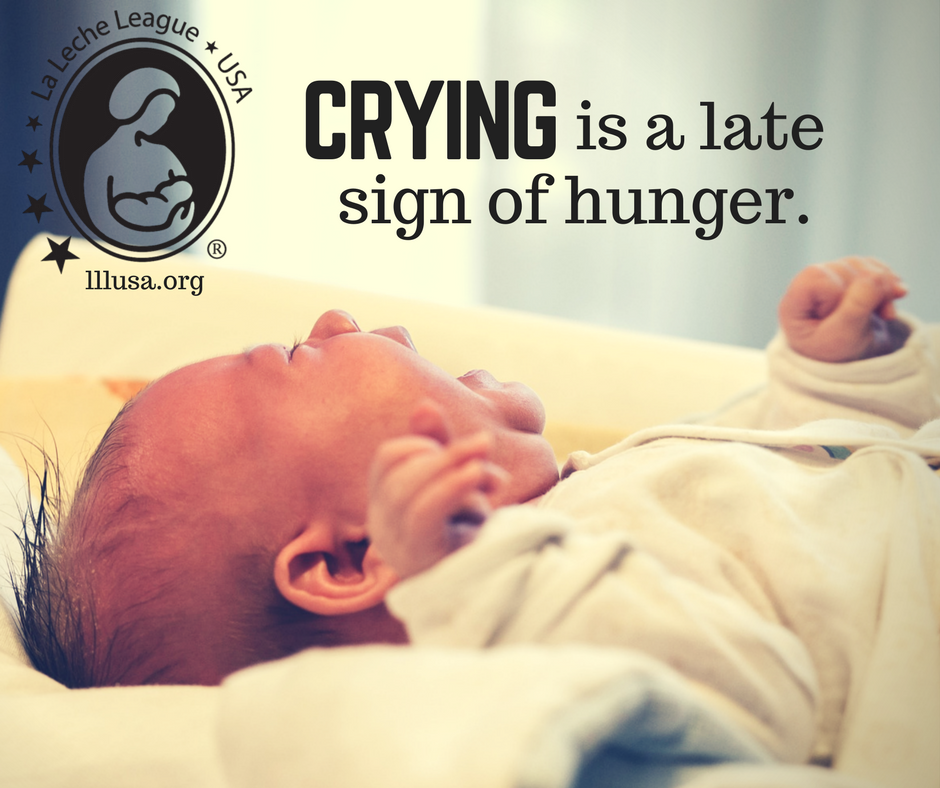 The material is for informational purposes and cannot replace the advice of a healthcare professional. For feeding children from birth. The product is certified.
The material is for informational purposes and cannot replace the advice of a healthcare professional. For feeding children from birth. The product is certified.
#advice for mom #breastfeeding
See also
Why does the baby not sleep after feeding?
#Tips for Mom #breast-feeding #colic #gaziki 7-12
Nikulina Anastasia Anatolyevna
pediatrician
The baby is not full of breast milk: how to determine it and what to do
#Food #breast-feeding #supplementing formula while breastfeeding
Shcherbakova Alla Anatolyevna
Candidate of Medical Sciences, pediatrician, gastroenterologist
Infant feeding patterns - what to choose
#Tips for Mom #breastfeeding
Kizino Polina Alexandrovna
pediatrician, perinatal psychologist
See all
View all
Why does the baby not sleep after feeding?
# Tips for mom # grudnoe-vskarmlivanie # breast-feeding # colic #koliki # gaziki 7-12
Nikulina Anastasia Anatolyevna
pediatrician
The baby is not full of breast milk: how to determine it and what to do
# Lure # breast-feeding # grudnoe-vskarmlivanie # formula supplementation while breastfeeding
Shcherbakova Alla Anatolyevna
Candidate of Medical Sciences, pediatrician, gastroenterologist
Infant feeding patterns - what to choose
# Tips for mom # breast-feeding #grudnoe-vskarmlivanie
Kizino Polina Alexandrovna
pediatrician, perinatal psychologist
See all
View all
View all
View all
Why does the baby cry - articles from the specialists of the clinic "Mother and Child"
Bondarenko Margarita Gennadievna
Otorhinolaryngologist (ENT)
Clinic "Mother and Child" Kuntsevo,
I want to eat!
Most often the baby cries because he wants to eat.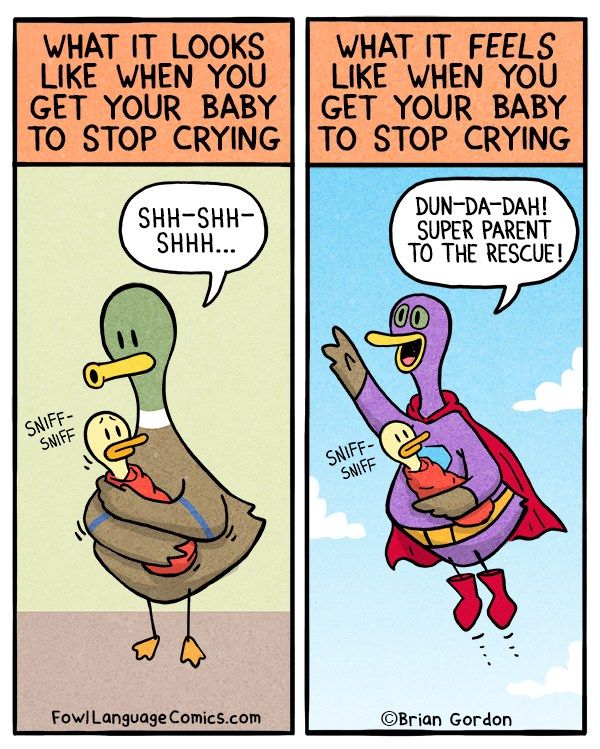 And to understand that he is hungry is the easiest way. At first, the baby shows concern, smacks his lips, turns his head to his mother's hand, stroking his cheek, tries to put his own fist in his mouth. All this means that there is very little time left before the hungry cry. Noticing such signs, you should not wait: feed the baby on demand. Otherwise, starting to cry, he will have to spend a lot of energy trying to calm down, and therefore, he will eat less and the next time he will get hungry again too soon. In general, for children who are breastfed, during the first month of life there is no clear feeding regimen. A newborn can be applied to the breast up to 10-12 times a day.
And to understand that he is hungry is the easiest way. At first, the baby shows concern, smacks his lips, turns his head to his mother's hand, stroking his cheek, tries to put his own fist in his mouth. All this means that there is very little time left before the hungry cry. Noticing such signs, you should not wait: feed the baby on demand. Otherwise, starting to cry, he will have to spend a lot of energy trying to calm down, and therefore, he will eat less and the next time he will get hungry again too soon. In general, for children who are breastfed, during the first month of life there is no clear feeding regimen. A newborn can be applied to the breast up to 10-12 times a day.
I want to sleep!
The next reason for screaming is, oddly enough, the desire to sleep. Many parents think that a baby can fall asleep anytime, anywhere, and even in almost any position. No, it's not like that - he needs help. How do you know if your baby wants to sleep? It's easy to guess. At first, he will behave restlessly, cry, push out the pacifier, rub his eyes, yawn. And then he starts crying. Here, too, it is necessary to try to calm the child as quickly as possible so that he does not disperse in crying, otherwise it will be more difficult for him to fall asleep. Rituals will help: you can shake the baby, sing a song, put it in the usual sleeping place.
At first, he will behave restlessly, cry, push out the pacifier, rub his eyes, yawn. And then he starts crying. Here, too, it is necessary to try to calm the child as quickly as possible so that he does not disperse in crying, otherwise it will be more difficult for him to fall asleep. Rituals will help: you can shake the baby, sing a song, put it in the usual sleeping place.
I'm wet!
Crying can be a signal that the baby is uncomfortable: for example, his diaper is wet. Cold and wet, they irritate the skin, so he screams: “Mom, dad, change me quickly!” Crying about this is whimpering, incessant, although it sounds either stronger or weaker, it may be accompanied by hiccups, as the child freezes in wet diapers. If the diaper is changed, and the baby is warmer to cover, he will calm down. If the child is not in diapers, but in reusable diapers, you should not relax either: they can leak or get wet inside. So, the baby is also wet and cold. If the child sleeps in one diaper all night, then he may be disturbed by a greatly increased diaper volume. And of course, children do not like to be in dirty diapers (diapers): feces quickly irritate delicate skin.
And of course, children do not like to be in dirty diapers (diapers): feces quickly irritate delicate skin.
I'm hot!
If the baby is hot, he will also cry about it. He will begin to whimper, scatter his arms and legs, his skin will turn red, a small red rash (prickly heat) may appear under his clothes. At the same time, the temperature of the baby sometimes even rises to 37.5 ° C. This is what saves here: the child must be undressed (and removed diapers, especially disposable ones), wiped with a towel moistened with water at room temperature, and allowed to lie in the air for several minutes. Then you need to dress the baby, but in other, clean clothes. In the fight against overheating and prickly heat, a reasonable amount of clothing and a comfortable room temperature - no higher than 24-25 ° C will help, first of all.
I'm uncomfortable!
The reason for the inconvenience can be any: the child may cry when the temperature changes, when changing clothes, changing the diaper or wiping his bottom with a damp cloth.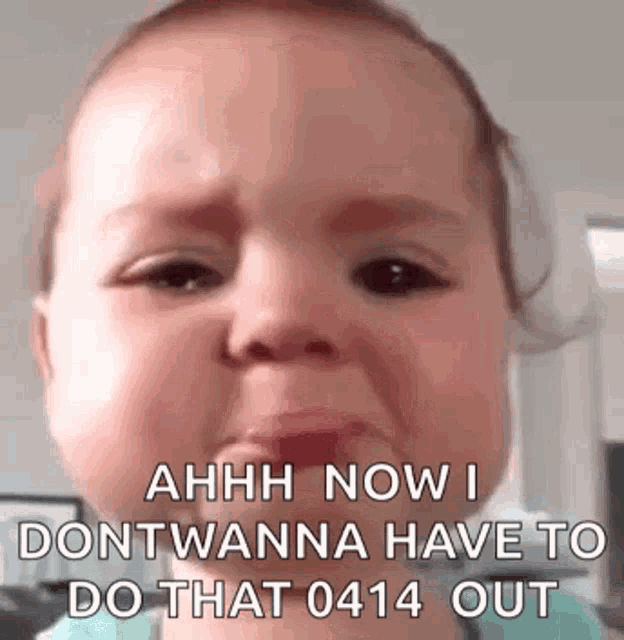 Newborns feel more comfortable when they are dressed or wrapped in diapers, because the touch of air on the skin is not always pleasant for them. In addition, children often do not like to be changed, especially if it is winter and you have to wear a lot of clothes. There is only one way out: learn to act as quickly as possible, causing the crumbs a minimum of inconvenience.
Newborns feel more comfortable when they are dressed or wrapped in diapers, because the touch of air on the skin is not always pleasant for them. In addition, children often do not like to be changed, especially if it is winter and you have to wear a lot of clothes. There is only one way out: learn to act as quickly as possible, causing the crumbs a minimum of inconvenience.
A few words about clothes. It is better not to buy clothes with fasteners on the back and coarse seams inside - the baby may not like it. And sometimes even the slightest thread or hair caught between the clothes and the skin of the baby causes him great inconvenience.
I want attention!
Attention and tactile sensations are very important for a child. He loves to see the faces of his mom and dad, hear their voices, communicate with them. But so far, the baby cannot ask his parents to take him in his arms, read him a fairy tale, sing a song, play - but this does not mean at all that he does not need it. Therefore, crying, the baby wants to be paid attention to, requires communication. Do not worry that the baby will get used to the hands too much. While he is so small, he needs to feel a sense of security - it is this that will later help him gain confidence in his abilities. Well, different cradles, deck chairs, playpens, child seats will only help mom and dad free their hands and at the same time place their beloved child next to them.
Therefore, crying, the baby wants to be paid attention to, requires communication. Do not worry that the baby will get used to the hands too much. While he is so small, he needs to feel a sense of security - it is this that will later help him gain confidence in his abilities. Well, different cradles, deck chairs, playpens, child seats will only help mom and dad free their hands and at the same time place their beloved child next to them.
Once you learn to understand your baby's "language", you will see that the reasons for crying vary from case to case. A little time and patience - and very soon you will understand what the child wants, already from the first seconds of his discontent.
Make an appointment
to the doctor - Bondarenko Margarita Gennadievna
Clinic "Mother and Child" Kuntsevo
Pediatric otorhinolaryngologyFor childrenDispanserizationMonitoring of children at home0003
By clicking on the send button, I consent to the processing of personal data
Attention! Prices for services in different clinics may vary.








